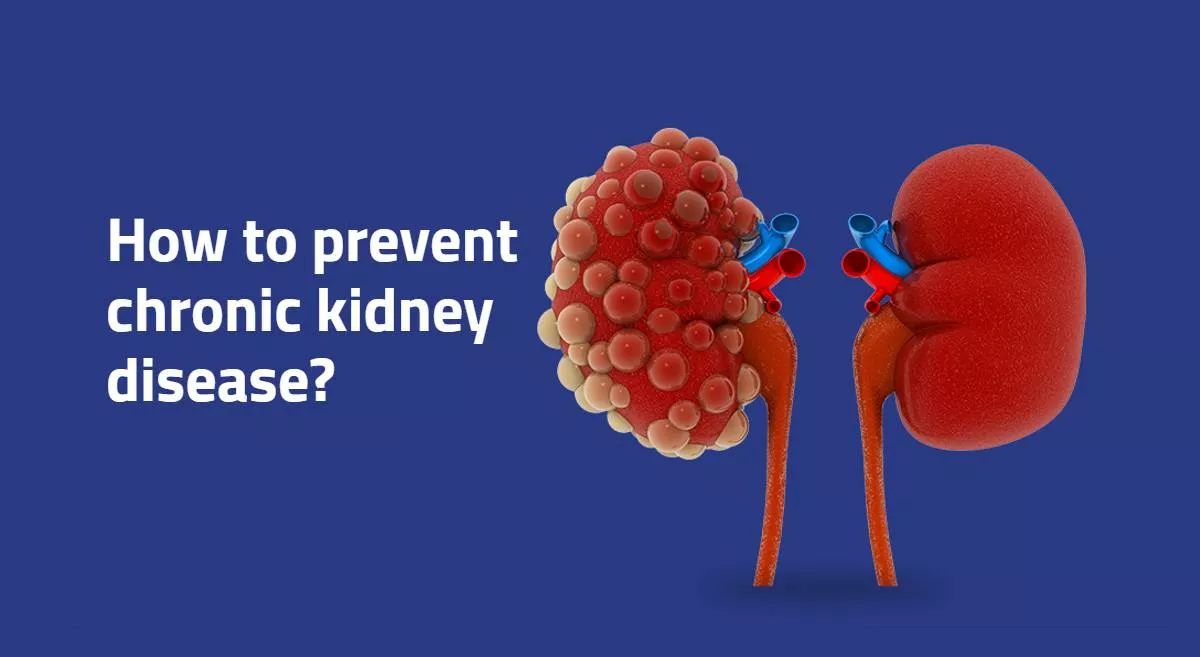With the rising trend of a sedentary lifestyle, long working hours and addiction to illicit habits, lifestyle diseases like Chronic Kidney Disease (CKD) has become a common problem among the population. Defined as an irreversible disease with no specific curative treatment, CKD is the 12th leading cause of death worldwide and approximately impacts close to 10% of the general population. The condition often leads to permanent damage and scarring of the kidneys and due to lack of awareness and knowledge, most patients suffering from the condition are often unaware until the late stages of the disease.
Several underlying factors such as Diabetes, Hypertension and Obesity, are the key contributors to chronic kidney disease. In India the trends are far more concerning as our country is regarded as the diabetic capital of the world and approximately constitutes 40% of diabetic patients, many of whom will eventually develop kidney disease. Thus, such trends emphasize the need to follow a healthy lifestyle and follow the age-old saying ‘prevention is better than cure’ to restrict the spread of chronic kidney diseases in time.
How can you prevent yourself from Chronic Kidney Disease:
Constantly monitor your sugar levels
If you are suffering from diabetes, then you must consult your physician regularly. It is recommended that such patients must also monitor their sugar levels and should keep their HbA1c value below 7.
It is a common misconception that the medicines taken for diabetes are the primary cause of the development of kidney diseases among diabetic patients, however, this is just a myth as our kidneys get damaged due to uncontrolled sugar levels. Therefore, diabetic patients need to optimize their diet, exercise, and anti-diabetic medications with the help of a physician to prevent kidney damage.
Check your blood pressure if you are hypertensive
Hypertensive patients must regularly monitor their blood pressure and must keep their blood pressure value below 140/90 or 130/80 mm Hg to be precise. Such patients must also reduce their salt intake and should regularly follow up with their doctor to keep a tab on their health and adjust to the medications.
Avoid Over the Counter Medications
Self-medication often leads to more harm than cure. With the advent of technology, information related to several medicines and diseases are available at the convenience of one ‘tap’ and instead of getting themselves examined by a medical practitioner, several people are now resorting to the web for any health-related issues. This has led to a rise in Over the Counter Medications, especially painkillers (Diclofenac, Aceclofenac, Ibuprofen, Nimesulide, Mefenemic acid, Naproxen) that are often taken without any prior consultation and result in kidney damage among several patients. Hence, it is important that before taking any such medications one must consult the best nephrologist in Bangalore and should take their opinion on its impact on their kidneys.
Adopt healthy practices to keep avoid CKD
People can also follow these healthy practices to reduce their risk of CKD
- Drink plenty of fluids, at least 2 to 3 litres of water per day.
- Adopt a healthy diet and consume food rich in fibre, low in fat, whole grains, nuts, seeds, poultry, fish, fruits and vegetables.
- Exercise regularly with moderate intensity for a healthy heart and kidneys. 30 minutes of daily physical activities like brisk walking, cycling, and swimming for at least 5 days in a week (150 minutes/week) is recommended for overall well-being. People can also consider strengthening and stretching exercises for two days a week for a healthier routine.
- Quit smoking: Smoking causes damage to the blood vessels which can affect the heart and kidneys. Therefore, It is very important to quit smoking.
- Weight reduction: Obesity is an independent risk factor for the development of kidney disease. Hence, one must monitor their Body Mass Index (BMI) regularly and should consult a dietician and consider a diet for weight reduction and do regular exercise if their BMI exceeds the optimum range. (Please mention)
- Regular health check-up: If you have risk factors like diabetes, hypertension, or a family history of kidney disease, it is advisable to have your kidneys screened every year. Simple investigations like urine routine and blood creatinine levels will give you an insight of kidney health. In selected individuals, an ultrasound abdomen would be required. It is advisable to have an annual health check-up if you are above 40 years of age.
- Children with recurrent urinary tract infections need special attention. Boys especially need detailed evaluation to know the cause of urinary tract infection and to receive appropriate treatment so that kidney damage is prevented.
Conclusion:
Identifying the risk factors like diabetes and hypertension and taking the necessary medications to keep them under control is of utmost importance in preventing kidney diseases. A healthy lifestyle, healthy diet, regular exercise, and avoiding over-the-counter medicines would help to a larger extent in preventing kidney damage.
Obesity is a major risk factor that must be tackled with appropriate dietary intervention and weight reduction.
Most importantly, periodic health check-ups at a nephrology hospital atleast once a year in patients with risk factors and those above 40 years is very important. Including simple inexpensive tests like urine routine and creatinine are recommended while undergoing a screening test as they provide several insights to your doctor if you are suffering from any kidney related problems.





